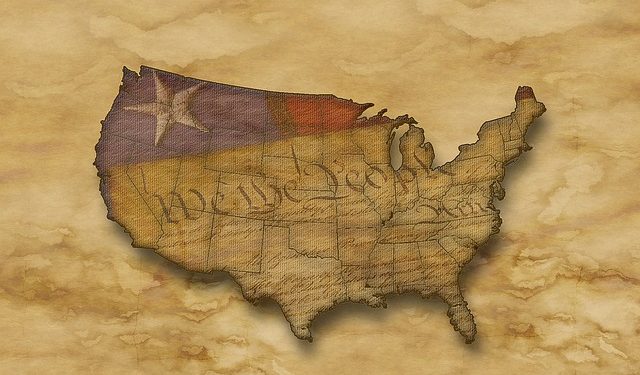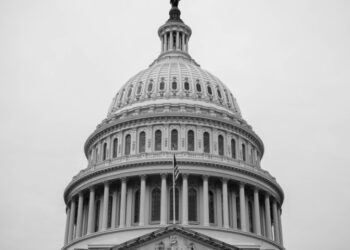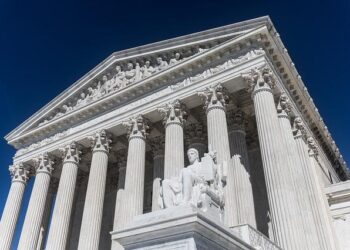The Seventh Amendment
The Seventh Amendment of the United States Constitution states that:
In Suits at common law, where the value in controversy shall exceed twenty dollars, the right of trial by jury shall be preserved, and no fact tried by a jury, shall be otherwise re-examined in any Court of the United States, than according to the rules of the common law.
The process of trial by jury historically has come a long way from its creation in England. Prior to their Revolution of 1688, a court’s decision was ultimately ruled by a king. Judges in that era were seen as servants to the King and were bound to sway in the King’s opinion. Unfortunately, this left too much room for corruption and abuse of power based on biases implemented by the King. After the Revolution occurred, the Seventh Amendment was put in place to avoid tyranny. The Seventh Amendment allowed for the accused to be judged not by one person, but instead by twelve of their peers. The jury is selected in the most impartial way as possible and the selection is determined in a way that is necessary to ensure a fair trial to the accused individual. Eventually, the American Colonists indoctrinated this law into the Bill of Rights becoming part of the first ten amendments to the constitution. The right to trial by jury has become a fundamental law and will be forever protected by the United States Constitution.
Although this amendment applies to the majority of cases, there are few cases in which the privilege of having a jury is not granted. For instance, if it is a civil case that results from controversy over more than twenty dollars, the right to a jury remains and cannot be re-examined in any other court. This is known as the Reexamination Clause and prevents any court from overruling a decision made by a jury. However, lawsuits being brought forth against the government have different stipulations. Rights to sue against the government and for admiralty matters have a right to a jury but they are determined by statute instead of the constitution. Also, there are some circumstance is which the jury is completely exempt. Federal medical facilities and practitioners that are overseen by the Federal Tort Claims Act are subject to ruling only by the United States Federal District Court Judge overseeing the case. The Judge in these instances will determine the outcome for all disputed issues and will be responsible for awarding an appropriate amount of money for damages, if any.
A second common misunderstanding is the number of jurors required in a trial. Although the standard and most typically used is twelve, the U.S. Supreme Court has made it clear that six jurors are sufficient for making a group decision and representing a cross section in the community. As long as the accused is still granted an effective trial, there is no violation of the Seventh Amendment. However, when the case is regarding something more serious, such as capital punishment, it is still required that the jury be made up of twelve jurors to ensure the accused is granted an impartial and fair trial.
Many people question the cost and time effectiveness of having a jury present in so many scenarios. However, there are some truly beneficial aspects to having a jury decide on your case versus a judge. Judges are often referred to as triers of law. Jurors are generally considered as triers of fact. Having the jurors make the decision keeps the accused individual’s outcome from being decided by one person’s beliefs and opinions. As long as a jury is deciding, then the decision remains in the hands of the people. This works out really well because it permits the jurors to make a verdict of guilty or not guilty but still allows for the judge to make sure that there are no legal issues left neglected. It used to be, in the eighteen hundreds, that the jurors were not only triers of fact but also triers of law. This was not an efficient way to solve matters because the American jurors were constantly ruling against the favor of other nations thus making it an unfair trial. The end of this came when foreign investors ceased investments in America out of fear of not having a fair suit if needed. Ultimately, the current laws maintain stability because they allow for the judge to decide which laws apply to the case and leave room for the jurors to determine the facts of the case.
Overall, there are four requirements that must be met in order to comply with the rules of the Seventh Amendment. First of all, the case must meet the guidelines that were originally implemented in 1771 by the English Common Law court. Secondly, the lawsuit must be brought in a federal court and not in a state court. Thirdly, the controversy of the lawsuit must be over an amount exceeding twenty dollars. And finally, the case must be filing a claim that is legal in nature as opposed to one that is in equity or admiralty. If all of these issues are satisfied, than the accused is entitled to a trial by jury of his peers. This law has come a long way and was originally indoctrinated into the constitution through the Bill of Rights in the first ten amendments.
There are many people who believe that the cost and time invested into having jurors is not a worthy cause. Ideas have been proposed that suggest lowering the number of jurors to save time and money but the current rules allows for a certain level of confidence in the system to make sure a fair decision is made equally amongst a group of people. Obviously, the more people agreeing on one opinion, the stronger the decision is and the more likely a fair decision is being granted. In reality, anything that allows for the pursuit of justice should be greatly appreciated and will always be the main priority.


 نیازمندیها
نیازمندیها





















